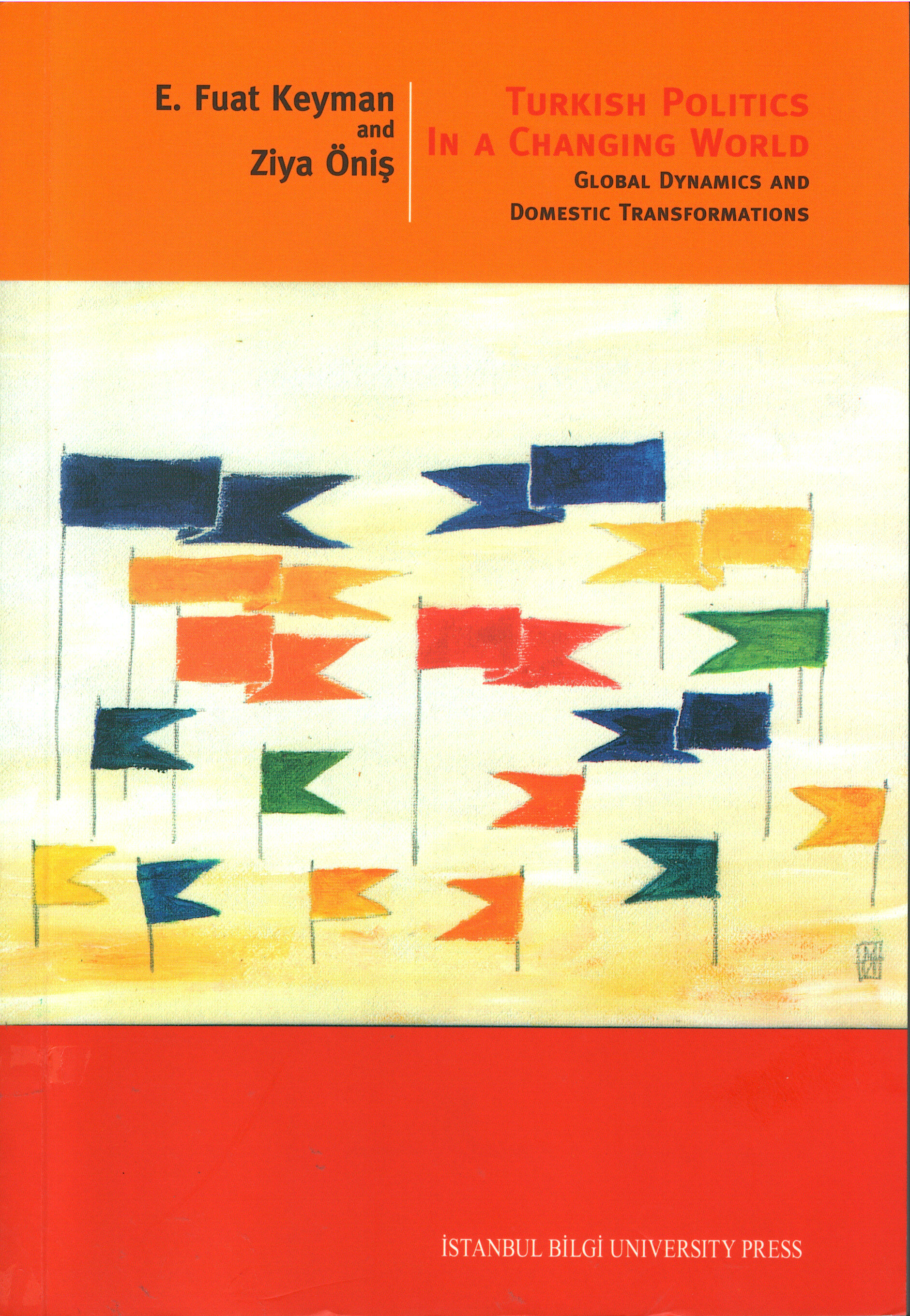
Turkish Politics In a Changing World: Global Dynamics and Domestic Transformations
Much of the serious and scholarly contributions to the study of Turkish politics have tended to focus more on domestic pressures and actors as the fundamental driving forces in Turkish politics. There is much to learn from these studies concerning Turkish politics and its underlying dynamics. Yet, at the same time, there is a need to re-think Turkish politics at a time when global and regional influences assume increasing importance, making it progressively more difficult to separate domestic politics from international politics and internal from external actors. At a time when “outside” becomes “inside”, a major effort needs to be made to analyze Turkish politics both theoretically and historically by paying attention to the interplay of global dynamics and domestic transformations. This way of approaching Turkish politics also enables us to go beyond binary oppositions and providing an understanding of Turkish politics that explicitly takes into account the interactions of the global, regional, national and local forces and processes._x000D_
_x000D_
In Turkish Politics in a Changing World, Keyman and Öniş provide a historical, sociological and political-economic analysis of Turkish politics by methodologically locating the governing of Turkey at the intersection of global-regional-national-local interactions. Their analysis of Turkish politics, exceptional for its analytical and methodological richness and explanatory power, makes a significant contribution in advancing our understanding of contemporary Turkey._x000D_
_x000D_
CHAPTER 1 Introduction
CHAPTER 2 Turkey’s Modernization and Democratization in Context
Encounters with Globalization
CHAPTER 3 Between Europeanization and the Nation State
CHAPTER 4 Modernization, Democratization and the Challenges to the New Europe
CHAPTER 5 Relations with Europe: Transformation and Uncertainty
CHAPTER 6 Political Economy in the Pre-Crisis Context: Domestic Politics versus Global Dynamics
CHAPTER 7 Post-Crisis Dynamics and the Process of Restructuring
Dilemmas of Democratic Consolidation
CHAPTER 8 The 2002 Election: A New Path Emerges
CHAPTER 9 The Political Economy of the AKP Era
CHAPTER 10 Social Democracy and the Question of the Center
Civil Society, Identity and Social Justice
CHAPTER 11 Social Justice, Inequality and Poverty
CHAPTER 12 Civil Society: Then and Now
CHAPTER 13 Articulating Citizenship and Identity: The Kurdish Question
Bibliography
Index
E. Fuat Keyman
E. Fuat Keyman, Koç Üniversitesi, Uluslararası İlişkiler Bölümü Öğretim Üyesi, ve Koç Üniversitesi Küreselleşme ve Demokratik Yönetim Merkezi’nin direktörüdür. Demokratikleşme, küreselleşme, uluslararası ilişkiler ve Türkiye’de devlet-toplum ilişkileri üzerine çalışmaktadır. Keyman’ın Türkiye’de ve yurtdışında yayımlanmış çok sayıda kitap ve makale çalışmaları bulunmaktadır. Kitapları arasında, Globalization, State, Identity/Difference: Towards a Critical Social Theory of International Relations (Humanities Press, New Jersey, 1997); Türkiye ve Radikal Demokrasi (Alfa, İstanbul, 2000); Global-Yerel Eksende Türkiye (Alfa, İstanbul, 2000, Ali Yaşar Sarıbay ile birlikte); Liberalizm, Devlet, Hegemonya (Everest, İstanbul, 2002); Değişen Dünya, Dönüşen Türkiye (İstanbul Bilgi Üniversitesi Yayınları, İstanbul, 2005);Citizenship in a Global World: European Questions and Turkish Experiences [Küreselleşen Dünyada Vatandaşlık: Avrupa Soruları, Türkiye Deneyimleri] (Routledge, Londra, Ocak, 2005, Ahmet İçduygu ile birlikte) ve Remaking Turkey: Globalization and Alternative Modernities (Türkiye’yi Yeniden-İnşa Etmek: Küreselleşme ve Alternatif Modernleşmeler) (Lexington, Oxford), Turkish Politics in a Changing World (Değişen Dünyada Türkiye Siyaseti, Ziya Öniş ile birlikte) (İstanbul Bilgi Üniversitesi Yayınları İstanbul 2007) ve Türkiye’nin İyi Yönetimi (İstanbul Bilgi Üniversitesi Yayınları İstanbul 2008) bulunmaktadır.
